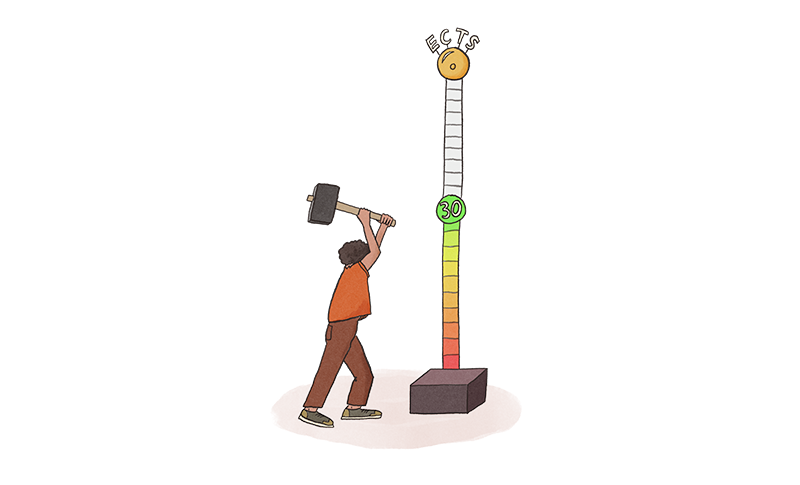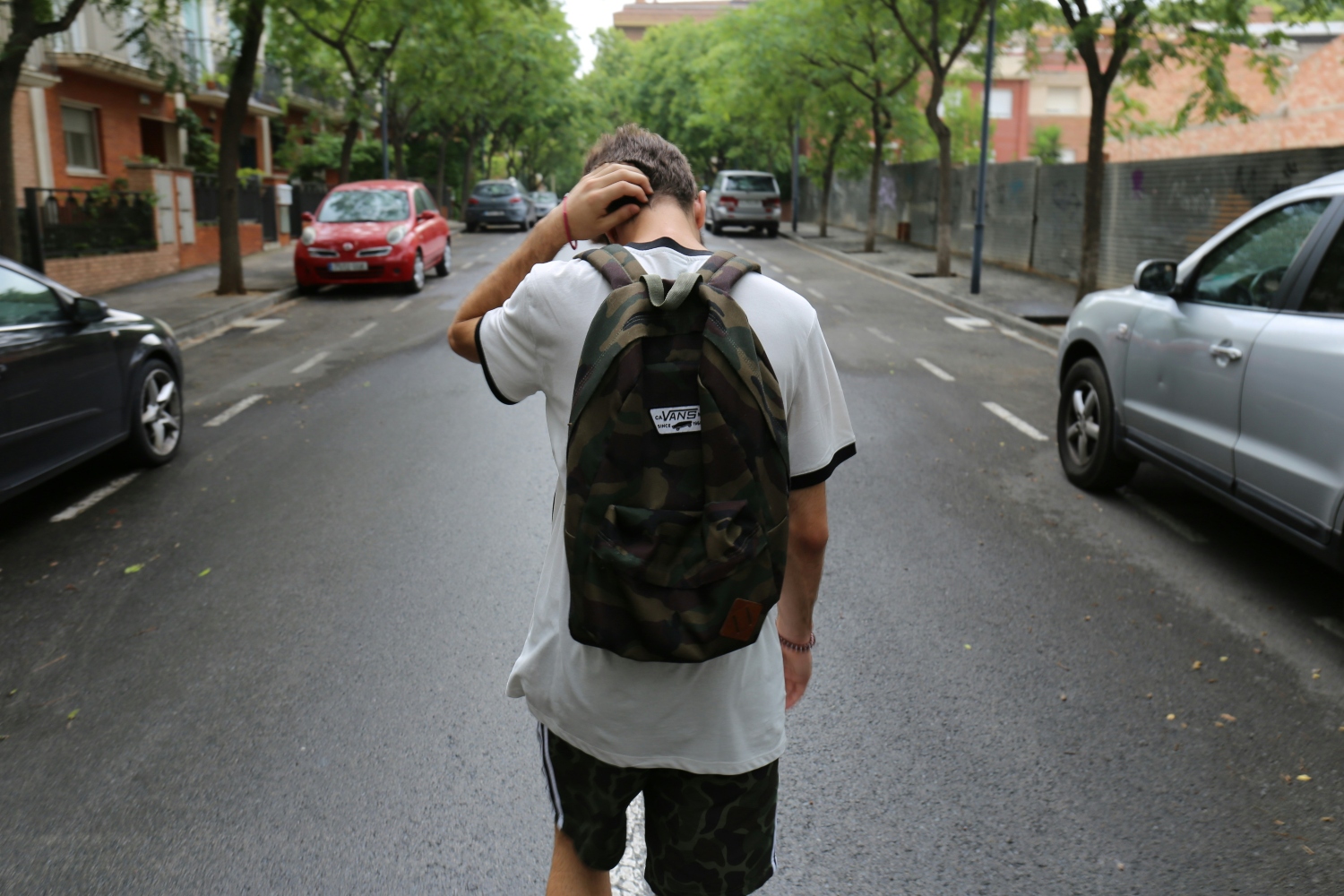The so-called ‘binding study advice’ (BSA) varies a lot between the Dutch universities. Wageningen students have to score 36 out of 60 credits to proceed to the second year; in Rotterdam, they have to get all 60. To reduce stress and the pressure on students, education minister Dijkgraaf wants to lower the BSA to 30 credits. He also wants to introduce a binding advice of 30 credits in the second year. So what are our thoughts on this?
Maartje van den Bosch (24), student council:
‘I get it that the minister wants to do something about the BSA nationwide. There are universities where you have to pass everything in the first year to be allowed to go into the second year. That has a negative impact on student welfare. In Wageningen, you have to pass 60 per cent of the points, which is a good motivator. The difference between 36 and 30 credits is not very big, so we don’t see much problem with that part of Dijkgraaf’s plan. But the idea of adding another BSA in the second year does worry us. If you have to drop out of your degree programme at the end of the second year because you don’t have enough credits, it will have a much bigger impact than if it happens in your first year.
Joram van Velzen (25), president of the National Student Union (LSVb):
‘Student welfare is in pretty bad shape and the pressure to perform is one of the reasons for that. So we think it would be a positive thing to lower the BSA nationwide. That isn’t a cure-all that will solve all the problems in one go, but it is a step in the right direction. LSVb is against the BSA on principle – we think it should be abolished. There are plenty of other ways of making students feel enough pressure to study. Even with the return of the basic grant, for example, taking a long time over your degree studying still means that you build up a big student debt.
‘If the BSA is abolished, you need something else instead. Universities and colleges should provide students with much better supervision. It is often inadequate at present. That could include advice about next steps, but it shouldn’t be binding. Leave that decision to students themselves.’
Ellah van Bemmel (20), first-year Environmental Sciences student:
‘I really think 60 credits, like in Rotterdam, is over the top – that’s very stressful. On the other hand, 30 is a bit low. I understand that the pressure needs reducing, but you can expect a university to maintain a certain standard. And a BSA of 36 to 45 credits is a good motivator. Some people don’t get much done if they’re left to their own devices, so something like this works for them. And an additional BSA in the second year is a good idea for them too.
‘The binding study advice in Wageningen is not stressful for me. I am highly motivated to get good grades. But if we had to get 60 credits here to get through to the second year, that would stress me out. But I’m not at all stressed about 36 credits.’
Arnold Bregt, dean of Education:
‘The minister is aware that students feel under too much pressure and wants to lower the BSA to reduce the pressure. Wageningen students experience stress too, but not because of our BSA. We give new students the chance to adjust and to skip a course, but they do have to score at least 60 per cent of the credits. In that respect, our BSA is nicely in line with what the minister has in mind.
‘I don’t know if an additional BSA in the second year is in the students’ interests. You might get 30 credits in your first year by the skin of your teeth, and then fail in the second year. Then you’ll have muddled along for two years by the time you have to drop out. It’s annoying for teachers to have students on an advanced course who lack the knowledge they need because they failed the introductory course. But it is also better for the students themselves to get clarity quickly on whether you are in the right place.’
Inge Sijpheer (19), education office in the study association Sylvatica (Forest and Nature Management)
‘If you don’t meet the BSA requirements, it could be a sign that you are not in the right place. I wonder whether lowering the BSA will make students give less priority to their studies, especially now that student social life is flourishing again. Perhaps it will make students take longer over their degrees. First- and second-year courses could then become oversubscribed, especially if there’s a BSA at the end of the second year too.
‘For WUR students, the difference between 30 and 36 credits is just one course. I haven’t heard anything about it from the study advisers yet, perhaps partly because, compared with other universities, it won’t have a big impact on us.’

 Illustration Ilja Bouwknegt
Illustration Ilja Bouwknegt 
![[Seriously?] Give students more credits](https://www.resource-online.nl/app/uploads/2024/02/WEB_De-neus.png)
